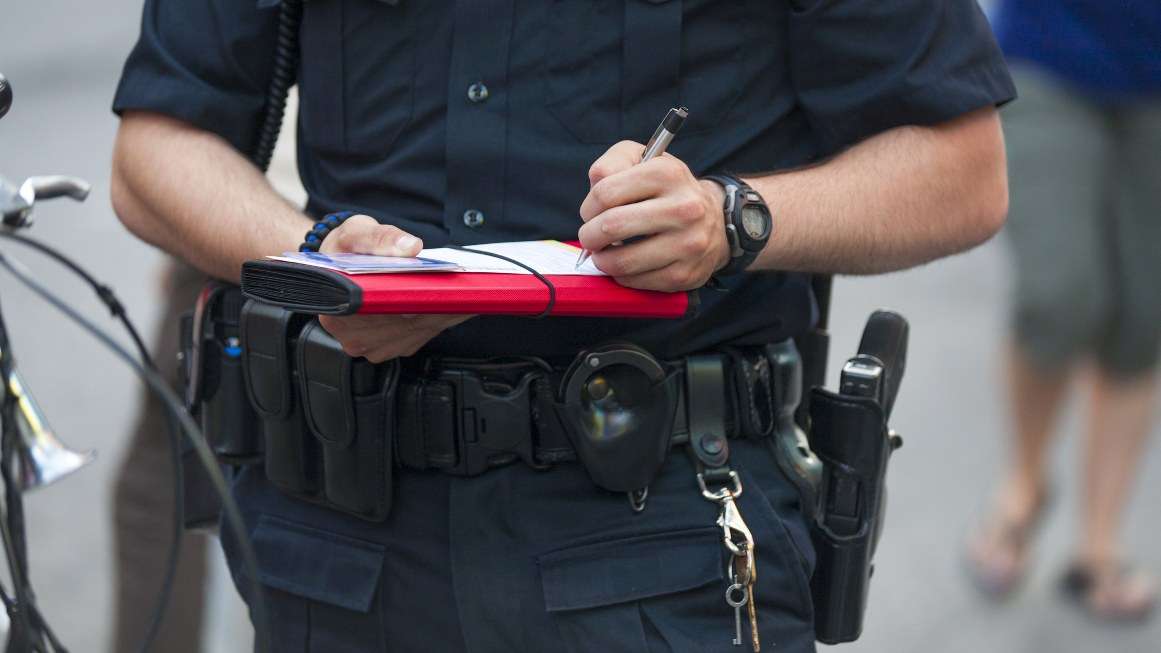When we last took note of Brookside, Alabama, a town of 1,500 people north of Birmingham, Police Chief Mike Jones had just stepped down following Birmingham News reports showing he, the mayor, and the police had embarked on a plan to bankroll Brookside by stopping and fining as many travelers as they possibly could. By 2020, half of the city's $1.2 million revenue was coming entirely from fines and forfeitures, and then that money was being used to pay for the police department's growth.
Brookside was facing a pack of federal lawsuits from citizens who claimed police were fabricating charges to force people to pay thousands of dollars in fines and seizing their vehicles. In April, the Institute for Justice (IJ) filed a class-action complaint against Brookside, some of its police officers, and the towing company that the police were using to seize people's cars. IJ is representing plaintiff Brittany Coleman (and three others), who says she was pulled over for following her boyfriend's car too closely and also cited for marijuana possession, a charge that was dropped later because the police didn't actually find any marijuana. Nevertheless, they had her car towed, and she had to pay close to $1,000 to get it back.
The lawsuit, in the U.S. District Court of the Northern District of Alabama, Southern Division, seeks to have the town's practices declared an unconstitutional violation of the Due Process Clause of the 14th Amendment, an injunction forcing the towing company to return people's vehicles and any fees they've paid, and, obviously, an end to the whole scheme.
The town's money-grubbing seems to have collapsed amid the media attention and lawsuits. In late April, the Birmingham News published a deeply researched piece on the police department's misconduct. By then the chief had quit, as had half of the town's police force. The mayor pulled the police off the nearby interstate, and a state audit had outlined "missing guns, poor financial practices and shoddy storage of evidence, including an unmarked trash bag filled with prescription medicines that did not seem to be associated with any particular case."

 reason.com
reason.com
Brookside was facing a pack of federal lawsuits from citizens who claimed police were fabricating charges to force people to pay thousands of dollars in fines and seizing their vehicles. In April, the Institute for Justice (IJ) filed a class-action complaint against Brookside, some of its police officers, and the towing company that the police were using to seize people's cars. IJ is representing plaintiff Brittany Coleman (and three others), who says she was pulled over for following her boyfriend's car too closely and also cited for marijuana possession, a charge that was dropped later because the police didn't actually find any marijuana. Nevertheless, they had her car towed, and she had to pay close to $1,000 to get it back.
The lawsuit, in the U.S. District Court of the Northern District of Alabama, Southern Division, seeks to have the town's practices declared an unconstitutional violation of the Due Process Clause of the 14th Amendment, an injunction forcing the towing company to return people's vehicles and any fees they've paid, and, obviously, an end to the whole scheme.
The town's money-grubbing seems to have collapsed amid the media attention and lawsuits. In late April, the Birmingham News published a deeply researched piece on the police department's misconduct. By then the chief had quit, as had half of the town's police force. The mayor pulled the police off the nearby interstate, and a state audit had outlined "missing guns, poor financial practices and shoddy storage of evidence, including an unmarked trash bag filled with prescription medicines that did not seem to be associated with any particular case."

Justice Department supports class-action suit against Alabama town's egregious fine-focused policing
A small Alabama town drew national attention for turning to shady police stops and fines to jack up municipal revenue by more than 600 percent in two years.
